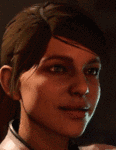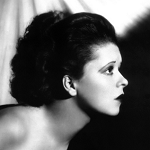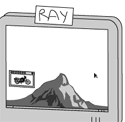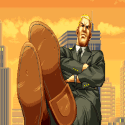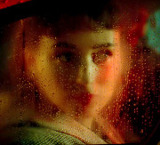|
This thread is intended specifically for the discussion of one Ursula Kroeber Le Guin, and the prolific work that she has done over her career. She has primarily worked in the science-fiction/fantasy genre, but always at its fringes, typically trying to push conventions or constraints in one way or another. She is possibly best known for her fantasy magnun opus of sorts, The Earthsea Cycle, which covers approximately five books and a collection of short stories, and which I recommend as a pretty good starting point. The first book in the series, A Wizard of Earthsea, is a very compelling, short, and satisfying novel. It's not a big time commitment to attempt to read, like George R R Martin or Tolkien. But then, Earthsea sort of skirts the "Young Adult" line, and while it was categorized at such when it was first written (partially for its brief length and deceptively straightforward writing style, I believe) you are not likely to find it in the YA section these days, but rather in the fantasy/sci-fi section, where it appropriately should be. The other book she is probably most well-known for is The Left Hand of Darkness, a sci-fi novel about a single human envoy who is sent to a planet undergoing an ice age, whose inhabitants are mono-gendered and utterly androgynous, with a very different society and approach to sexuality and gender than we are used to. Le Guin does some amazing things with this premise, and Left Hand is probably my personal favorite book of hers, though it can be difficult to get into initially due to a somewhat unorthodox, anthropological-like approach Le Guin takes to the novel and to her exploration of its world. Another good one to recommend is Lathe of Heaven - a more traditional stand-alone work of sci-fi by Le Guin that is a very wonderful, fun, mind-bending read. She wrote it as something of an homage to Philip K. Dick, and purposely borrowed a number of his tropes and motifs and used them to great effect. That said, it's not as if she "stole" from him, or anything - Dick gave the novel ebullient praise and loved it, which makes sense. I think I'll stop here, as that is likely enough of an OP for now, I suppose. All the links are to the corresponding wikipedia articles, and I hope that is perhaps helpful. I have so much more to say about these books that I feel as if I am holding back, but perhaps it's better to save it for discussion. I want to talk about the use of magic in Le Guin's Earthsea books, for instance, and how much I love the way she portrayed it. Or what her Dragons in those books are like - my favorite dragons from any fantasy novel. Or the way she uses race, and will sometimes very quietly makes her heroes dark-skinned without bothering to mention such an inconsequential fact till halfway through when we've already strongly identified with the character. But yeah, I'll save all that. Meantime, discuss, people! I will do my best to answer any questions. kaworu fucked around with this message at 23:55 on Oct 28, 2013 |
|
|
|

|
| # ? Apr 25, 2024 08:48 |
|
Surprised you didn't mention The Dispossessed. People focus on Le Guin as a female author writing in a male-dominated genre and they forget that she was also writing socialist works in a generally libertarian genre; The Dispossessed can be read as the antithesis of Heinlein's The Moon is a Harsh Mistress. And let us not neglect The Ones Who Walk Away from Omelas.
|
|
|
|
|
Hieronymous Alloy posted:Surprised you didn't mention The Dispossessed. People focus on Le Guin as a female author writing in a male-dominated genre and they forget that she was also writing socialist works in a generally libertarian genre; The Dispossessed can be read as the antithesis of Heinlein's The Moon is a Harsh Mistress. Ah! You got me here. This was the book that was on the bubble to be briefly profiled in the OP but I decided against it, since I am prone to writing wall-of-text posts that look too long to read. But it's one of my favorites, and I agree with what you're saying absolutely. It's a wonderful in that while it is the antithesis of that Heinlein book, it is not a response per se; Le Guin has no axe to grind, and no interest in simply making heavy-handed political points. Rather, one gets the idea that she is truly concerned with creating worlds and characters and telling stories first and foremost. The political architecture of a novel like The Dispossessed is set atop the foundation of a strongly told and compelling story. quote:And let us not neglect The Ones Who Walk Away from Omelas. I completely forgot about this. Maybe because no matter how many times I read it, I find it profoundly upsetting. And the more I think about it, the more upset I get. Which is to say it's a pretty stunning little piece of writing. kaworu fucked around with this message at 21:17 on Oct 28, 2013 |
|
|
|
I'm glad you decided to make this thread. kaworu posted:Ah! You got me here. This was the book that was on the bubble to be briefly profiled in the OP but I decided against it, since I am prone to writing wall-of-text posts that look too long to read. But it's one of my favorites, and I agree with what you're saying absolutely. It's a wonderful in that while it is the antithesis of that Heinlein book, it is not a response per se; Le Guin has no axe to grind, and no interest in simply making heavy-handed political points. Rather, one gets the idea that she is truly concerned with creating worlds and characters and telling stories first and foremost. The political architecture of a novel like The Dispossessed is set atop the foundation of a strongly told and compelling story. Wouldn't you say that The Dispossessed is actually rather heavy-handed in its setting? Annares and Urras are basically capitalistplanet and anarchist-socialistplanet, and this was during the Cold War too. Le Guin satirises, or criticises, both of them, but there's very obviously some ideological goings-on. In fact I'd say that "putting politics atop a compelling story" is backwards, for The Dispossessed in particular and invented worlds in particular. I still enjoyed it a lot though! It's a very worthy Hugo winner. And as Hieronymus mentioned The Dispossessed is a reply to Heinlein, Samuel R Delany's Trouble on Triton is a reply to it too (Dispossessed's subtitle is "An Ambiguous Utopia", Triton's "An Ambiguous Heterotopia".)
|
|
|
|
kaworu posted:I completely forgot about this. Maybe because no matter how many times I read it, I find it profoundly upsetting. And the more I think about it, the more upset I get. Which is to say it's a pretty stunning little piece of writing. Oh yes. That's always an interesting story to share with students because of how visceral a reaction you get.
|
|
|
|
This is an important thread to have. LeGuin might have been the most important science fiction and fantasy writer of the 20th century, in no small part because she was willing to treat the genre as literature first, rather than a vehicle for its ideas.
|
|
|
House Louse posted:I'm glad you decided to make this thread. Yes at first, but then later in the book no, and by then it's not a problem. I mean, on the one hand, if you compare to the rest of the genre at the time, it's just about as heavy-handed as, say, MIAHM was. On the other, that particular kind of heavy-handedness in example isn't necessarily a bad thing; utopian fiction necessitates clear examples, and The Dispossessed is as much in the tradition of Utopia or Gulliver's Travels as it is a sci-fi genre work. It would be kinda interesting to compare MiaHM and Dispossessed and focus on the extent to which each of them deconstructs their own utopias.
|
|
|
|
|
I'm not sure I get the Omelas story, is it meant to be a critique of utilitarianism? Collectivism? Something else?
|
|
|
|
The sense I got from The Dispossessed was that it was concerned with showing how this society had a completely different set of problems than our own, and letting the nature of those problems and what they affected speak for itself -- basically an honest, non-rhetorical "is this not better?" Which is just another way of saying that's it's well-written utopian fiction. Tuxedo Catfish fucked around with this message at 23:53 on Oct 28, 2013 |
|
|
TOOT BOOT posted:I'm not sure I get the Omelas story, is it meant to be a critique of utilitarianism? Collectivism? Something else? It's a parable, and therefore somewhat deliberately enigmatic. You can try to reduce it "this is a critique of Apple Iphones and Foxconn factories" but it's not that and it's also more than just that. It may even be a prescription, or a hope and query for an exit, or a lament that the author has not yet themselves taken the path away.
|
|
|
|
|
I'm pretty sure Omelas is directed at Western, first-world civilization in general, but whether it's an outright condemnation or not I don't know. EDIT: That is to say, it doesn't represent us, it represents something better than us that's still deeply unsettling and horrifying.
|
|
|
|
TOOT BOOT posted:I'm not sure I get the Omelas story, is it meant to be a critique of utilitarianism? Collectivism? Something else? Read broadly, it's a criticism of us. Any society which generates wealth through exploitation. Like Hieronymous said, I don't think it presents a clear solution. It's just sort of an...examination.
|
|
|
|
Hieronymous Alloy posted:Yes at first, but then later in the book no, and by then it's not a problem. I agree with all of this, especially sf's tendency to heavy-handedness. I just think kaworu's wrong to describe it as a story first with political stuff added on; it screams "theme! subtext!". And while the Annares/Urras setup is pretty unsubtle, the novel's virtues outweigh that. E: Maybe better to say, yes it's unsubtle, but that's the point, and it goes on to do things with that premise that redeem it. The heavy-handedness doesn't go all the way down. Safety Biscuits fucked around with this message at 00:07 on Oct 29, 2013 |
|
|
|
If you haven't yet, you should also check out her blog where she writes anthropological fiction about this mysterious being that came to live with her called "cat". If that post doesn't make you go Lathe of Heaven will always be my favorite though.
|
|
|
|
I thought The Dispossessed could be pretty crude at times. I put it down about 70% of the way through because it kept doing things that rubbed me the wrong way. It felt like the cards were stacked too heavily against the capitalist society. As someone who works as a lawyer where a significant portion of what I do is competition law related and who has an economics degree the cavalier dismissal of economics really irritated me, for example. I enjoyed The Left Hand of Darkness and thought it had some interesting gender commentary (although it could drag at times), so I probably wouldn't hate all Le Guin, but it did put me off looking into her further.
|
|
|
|
I've been considering buying the Earthsea Quartet for years, and thanks to this thread I finally went and bought this very pretty edition. It has the first four novels (hence "quartet"). Am I right in thinking that, once I'm done with this volume, all I'll need to get is The Other Wind and Tales from Earthsea to have the complete experience?
|
|
|
|
Hedrigall posted:I've been considering buying the Earthsea Quartet for years, and thanks to this thread I finally went and bought this very pretty edition. It has the first four novels (hence "quartet"). Am I right in thinking that, once I'm done with this volume, all I'll need to get is The Other Wind and Tales from Earthsea to have the complete experience? There's also two related short stories in The Wind's Twelve Quarters In fact, checking wiki it appears they were where she created Earthsea, basically. The Wind's Twelve Quarters is my favorite short story book, with Darkness Box and Things being some of my favorite short stories ever, so you should get it anyway.
|
|
|
|
A note for the practical reader: the Earthsea novels (the first three at least) can work really well as a bedtime read-aloud. My son loved having them read to him when he was around 7 or 8, and it's really nice to be reading something of that quality.
|
|
|
|
Hedrigall posted:I've been considering buying the Earthsea Quartet for years, and thanks to this thread I finally went and bought this very pretty edition. It has the first four novels (hence "quartet"). Am I right in thinking that, once I'm done with this volume, all I'll need to get is The Other Wind and Tales from Earthsea to have the complete experience? I want to talk a little about this. The Earthsea books have been known, at various times, as a trilogy, a quartet, and a "cycle". I prefer to call it a "cycle" because it sounds cool, and in truth, the Earthsea books actually consist primarily of two entirely seperate trilogies, written during very different periods of Le Guin's life: Earthsea Trilogy 1 (released from 1968-1972) A Wizard of Earthsea The Tombs of Atuan The Farthest Shore Earthsea Trilogy 2 (released from 1990-2001) Tehanu Tales from Earthsea The Other Wind I think the books divide very nicely into these two, separate trilogies. The first trilogy primarily concerns the events of Ged/Sparrowhawk, while the second trilogy takes a broader view of things. I would say they should be read in this specific order, 1-6, as it is the order they were written in and the books make the most sense when read in that order. My belief, after some recent consideration, is that Le Guin wrote the second trilogy in part as a sort of... counterbalance to the first trilogy. To maintain some sense of equilibrium. She tried too hard in Tehanu, arguably the weakest of the series, definitely the strangest. Tehanu is best read from the perspective of feminism, and as a feminist response to how patriarchal the first trilogy was in construction and adherence to certain tried and true fantasy tropes. This does not detract from them, per se, but it's there nevertheless, as Le Guin was increasingly aware as she grew older. It is evident to me now that in the second trilogy, Le Guin purposely placed the balance of power firmly in the hands of the female characters (and the feminine side of things in general) during the second trilogy. And I have to say that the more I read those books and the think about it, the more it makes sense to me and the more I like and respect the choices she made - even in the controversial Tehanu. I hesitate to discuss more as I don't want to get too deep into spoilers. Albinator posted:A note for the practical reader: the Earthsea novels (the first three at least) can work really well as a bedtime read-aloud. My son loved having them read to him when he was around 7 or 8, and it's really nice to be reading something of that quality. This is so true. Lying in bed with my eyes shut as my father read the first trilogy aloud to me when I was around that age is a treasured memory... And I can only imagine those books were an absolute pleasure for him to read aloud to me. I highly recommend this to all parents. But I want to say that you should NOT read Tehanu aloud to your children. As an apropos response to both of the posts I quoted, Tehanu deals with the violent physical abuse, rape, and abandonment of a young girl by her family. Many thought at the time book was released that events such as those had no place in Earthsea novels, and perhaps this is so, but I sympathize greatly with the points Le Guin was trying to make. But nevertheless, I would not consider Tehanu appropriate YA reading - which is a bit of a shame because Tales From Earthsea and The Other Wind are pretty wonderful and perfectly appropriate for all ages, I think. That said, if you were reading this series to your kids, I think you could skip Tehanu and be more or less fine. kaworu fucked around with this message at 16:34 on Oct 29, 2013 |
|
|
|
I don't think I've ever gotten into as many literary arguments on any topic as I have when discussing Ursula le Guin. Trying to get people who read Harry Potter to read Earthsea has been a challenge, despite the fact that Harry Potter (which I won't criticise as I haven't read them) seems to borrow so heavily from Earthsea - an economically disadvantaged young orphaned boy discovers he has magical aptitude and has his life change dramatically after attending Wizard School(TM), then saves the world. I think the Earthsea novels aren't short, they are succinct. Le Guin wrote them like the Hemingway of fantasy, using simple, terse, and at times even aphoristic sentences. If any of you haven't had the misfortune of watching the unbearable live action screen adaptation, and you value your faith in humankind, save yourself the pain. Not only are the protagonists now all white, there is actually a token black guy on the island - a remote fishing/farming island with a tiny population, with 1 black person living there somehow. Not that the choice to make the main characters of Earthsea various coloured tones instead of white was a deliberate political statement; le Guin herself commented that every fantasy series just seems to have white characters by default. She felt that of the ranges of colours people can be, she could just choose whichever she wanted, and she wanted hers to be a range from copper to brown to black to whatever she felt like. In a way, the ability to simply choose her characters' skin colours without an intentional political message attached to it is a powerful message on its own: a kind of post-racial understanding that colour can be a mere background detail like descriptions of foliage and sunsets, rather than a plot point to which some implicit importance and conflict is attached. In the foreword she wrote for my edition of The Dispossessed (I think, it may have been Left Hand of Darkness) she discussed her concept of integrity in writing, which has persisted with me since. This idea is that integrity consists in using only elements which belong, and are necessary. Use the words that tell the story you want to tell; the language used must be necessary, but sufficient. It aligns with Chekov's Gun, or Einstein's concise statement of Occam's razor - every explanation should be as simple as possible but no simpler. This foreword, plus maybe Politics and the English Language, should be required reading before anyone is allowed to commit pen to paper. I had an English teacher in elementary school who told an un-listening classroom that poetry was the most succinct form of human expression through language, which I took to mean was because layers of meaning could be encoded almost like a puzzle; that the range of interpretation and emotion conveyed in so few words, although sometimes encrypted like a puzzle, was almost a form of data compression. Prose can aspire to the same brevity and impact. I think this thread is going to make me visit amazon next, there's some books I need to buy.
|
|
|
|
I found this thread from the front page popular threads box, or I never would have seen it. I've never read any of Ursula Le Guin's other writings, but when I was maybe twelve years old I bought a book of short stories, one of which was Schrödinger's Cat. I've reread that story multiple times since then, because it stuck with me so much even though it was nearly impossible to wrap my head around. I don't think I can link to the story itself, but randomly finding this thread has inspired me to track down some of her other short stories and novels.
|
|
|
|
TOOT BOOT posted:I'm not sure I get the Omelas story, is it meant to be a critique of utilitarianism? Collectivism? Something else? I took it as a critique of capitalism, myself. It describes a utopia that requires a single child to suffer terribly (but no worse than what thousands of children in our world really do experience), the reader rejects this society because most people don't believe any utopia is worth the deliberate infliction of that kind of suffering on a single child. Yet people defend the inevitable suffering of some people in a free market society by claiming it's inevitable and our economic freedom is worth it. If our society pales in comparison to the beauty and happiness of Omelas, how can we justify inflicting even greater suffering through our system's inevitable inequalities? Those that claim that it's not worth sacrificing a portion of the happiness and freedom of the majority to save a minority from abuse are far worse than those who think it's not worth being kind to the child in Omelas because it would magically make Omelas not as utopian.
|
|
|
|
To me, the Omelas story is extremely personal. I could dissect from a broad, political point of view but... That is not how I react to the story. As Lotish pointed out, it's a story that tends to elicit a visceral reaction. It hits me right in the gut, and I can't help but relate to it empathetically and personally. To me, it's about a decision I made at some point. I can't say when I made the decision, or if I was aware that I was even making it at the time. But there was some point where I became more aware of the extent of the suffering that can exist, and does exist on this world. And that my knowledge of this suffering, and lack of action to do whatever I could to stop it, somehow makes me complicit in this world that allows this suffering to occur. Or I don't know. Maybe I am wrong.
|
|
|
|
quote:The next day we did seven miles, the next day twelve, and the day after that we came out of From The Left Hand Of Darkness. Read it out loud and enjoy my favourite passage from the book.
|
|
|
|
Couple other good ones: The collection "Three Hainish Novels" is a personal favorite. It's like comfort food to me. An otherworldly adventure trilogy that's sort of classic pulp/early new wave hybrid. Easy reading, highly entertaining adventure written in light, elegant prose. More reminiscent of Leigh Brackett than any other book of hers. "The Word for the World is Forest" is a harsh, unapologetic take on classic he-men and their love of domination, taking place on a pristine planet being pillaged by a militarized earth. So if you read it, goons, you can have the pleasure of adding it to the "oh that was just like dances with wolves" list.
|
|
|
|
Yay, a LeGuin thread.  I haven't read any of her other books (I've got Left Hand of Darkness and The Dispossessed right here but never started them for some reason; I'll do that tomorrow
|
|
|
|
Autumncomet posted:Yay, a LeGuin thread. I am actually pretty sure it may have been the only "mainstream" fantasy novel to be brave enough to cast people of color in the vast majority of its roles. One of the things I loved was that she was relatively nonspecific about it too, so it left plenty of space in the imagination. I always imagined Ged and Ogion and other Gontishmen as looking vaguely like Native Americans in skin tone, while people in Havnor and the center of the Archipelago had more of an Arabian/Indian look to them, and then people in the east/southeast like Vetch were black like Africans. You probably have a different idea of things, which is great. And of course only the barbarian Kargads were white. It was amazing how... softly and quietly she interjected this into the story, and I truly loved that. It gave so much more substance and imagery to the world. Also, Left Hand of Darkness has a black man for its only actual human character in the book, which is pretty cool. I didn't fully even pick up on it initially. Sci-fi can be almost as bad as fantasy in terms of how white-washed it can be.
|
|
|
|
I think in sci-fi the first "major" novel with a non-white protagonist was Heinlein's Starship Troopers (you find out on the last page that the protagonist's native language is Tagalog). I could be wrong about that though, I can't find a specific citation.
|
|
|
|
|
It wasn't a novel, exactly, and it certainly wasn't major by American SF/F standards, but it is worth noting that some great SF was written by people of color even in the lovely colonial days. The Sultana's Dream is pretty cool. And kaworu I think you're dead on about LeGuin's subtlety. She's not only a gentle writer, but her fiction seems to make an argument for the power of being gentle, both in its prose style (which delivers some real gutpunches without any pyrotechnics or coarseness) and in the behavior of its character.
|
|
|
|
TOOT BOOT posted:I'm not sure I get the Omelas story, is it meant to be a critique of utilitarianism? Collectivism? Something else? She claims it was in response to a quote in The Moral Philosopher and the Moral Life by William James that went: quote:Or if the hypothesis were offered us of a world in which Messrs. Fourier's and Bellamy's and Morris's utopias should all be outdone, and millions kept permanently happy on the one simple condition that a certain lost soul on the far-off edge of things should lead a life of lonely torture, what except a specifical and independent sort of emotion can it be which would make us immediately feel, even though an impulse arose within us to clutch at the happiness so offered, how hideous a thing would be its enjoyment when deliberately accepted as the fruit of such a bargain? One of the interesting things, I think, about LeGuin's books, is the influence of her parents. Her parents, Alfred and Theodora Krober, were anthropologists at Berkeley (They were famous for their work with Ishi, the last member of the Yana tribe of California), and I think their anthropological work affected hers. I'm thinking specifically of Always Coming Home here, but you can see it in a lot of her other stuff.
|
|
|
|
Delaney was I think kind of imitative of Le Guin in at least one novel, or was heavily influenced. And of course in his books people were of all different ethnicities. I think he was painfully aware that the vast majority of his readership was caucasian and that influenced his choice in his protagonists, among other things. Perhaps this thread could be expanded to the broader topic of new wave science fiction? I don't imagine there's going to be a helluva lot of discussion on Ms. Le Guin and I'm afraid this thread isn't going to flourish that much without a broader participation. And I'd like to talk and hear others on some of my favorites growing up.
|
|
|
|
We could do that, but I want to ask what people think of Tehanu, which, as noted above, has always been controversial.
|
|
|
SnakePlissken posted:
It's sortof funny that it can be hard to discuss LeGuin because everyone is just "ok, she's awesome. 'Nuff said." I'm starting on Lathe of Heaven because of this thread but a little worried that it'll make me sad. I've also got a copy of her translation of the Tao te Ching but I haven't actually read it yet either or compared it to the translations I already have.
|
|
|
|
|
I don't know; I rather think we could keep some discussion up for a while, it seems to me that Le Guin is actually rather prolific, and I'm willing to bet we could find plenty to talk about. Maybe I was being overly optimistic, but I thought briefly about just making an Earthsea thread! I think this thread could thrive and do well, given that in my opinion there's lots to discuss. Although, as Hieronymous Alloy just pointed out, not much to argue about. Pretty much everyone who actually bothers to seek out her work is liable to love her. Something I wanted to mention was that Le Guin also wrote a book once called Steering the Craft, on the subject of writing, that I'd been meaning to track down. I had (and lost) a copy that was given to me as a birthday when I was 14 or 15, and I couldn't properly appreciate it at the time. I just this week ordered a reasonably priced used copy from amazon and am waiting for it to arrive with some trepidation. I harbored fantasies of being a writer when I was younger, which were slowly torn to pieces by my own inability to actually do the hard work required. I'm really looking forward to getting this book and actually doing the exercises in it, now - not that I suddenly think it will make me a writer or anything, but since I've started reading Ursula again I have just been - far more than every before - utterly mesmerized by the economy and beauty of her prose, and see much more clearly the influence of stuff like various translations of the Tao Te Ching or just eastern poetry in general. I'd always known her books were influenced philosophically by Eastern thought and religion, but it's very interesting to see the ways in which the more technical aspects of her writing were as well. It's a bit sad. I was going to talk about DRAGONS in this post, and write a lengthy treatise on why Le Guin's dragons are the *best* dragons by far, and captured the immutable essence of what a dragon is both practically and metaphorically. Her dragons are like the literal manifestation of the essence of all that fantasy and magic and the possibility of such things might represent. Or something. It's hard to put into words!
|
|
|
|
The dragons in Earthsea are actually the mysterious ersatz beings that they're supposed to be instead of just another stock fantasy creature. LeGuin was great at bypassing dumb cliches even 40+ years ago.
|
|
|
|
I am just about finished with Left Hand and I really love it. I'm just about to graduate my lit degree, and am planning to go on and do honours next year. My theoretical/framework basis is psychoanalytical and I've been really looking for more literary scifi to write about after doing a decent Freudian paper on Neuromancer, and Left Hand is perfect. I'm really angry at myself for not reading Le Guin before, I will check out The Dispossessed asap.
|
|
|
|
LeGuin is one of the few writers whose prose gets more and more impressive the more you learn about writing. As a naive teenager I was like 'eh, this is fine workmanlike stuff', but no, turns out, she's a genius!
|
|
|
|
General Battuta posted:LeGuin is one of the few writers whose prose gets more and more impressive the more you learn about writing. As a naive teenager I was like 'eh, this is fine workmanlike stuff', but no, turns out, she's a genius! Nah there are lots of authors like that. Most of them just don't write fantasy. As a huge nerd I do still appreciate the rarity of that combination, though. 
|
|
|
|
General Battuta posted:We could do that, but I want to ask what people think of Tehanu, which, as noted above, has always been controversial. I thought it was great. I think if I'd read it at a younger age I would have enjoyed it less due to the tonal shift, and also because it's much less flashbang epic compared to the rest of the quartet. But seeing as I read it as an adult, I really appreciated where Le Guin was going with it all. And I loved Tombs of Atuan, so getting Arha/Tenar as the protagonist again was pretty cool. But I can see why other people didn't like it so much. Although frankly, a sad amount of the flak it gets seems to be from people who thought it was sexist against men. Maybe it's been too long since I've read it, but I don't recall it being sexist, more just pointing out the sexism in character's attitudes and in her previous world-building. But I could be wrong.
|
|
|
|

|
| # ? Apr 25, 2024 08:48 |
|
I read all four (as it was then) together when I was ten, and I thought it was strange and scary in a much deeper way than the other books, albeit in a way prefigured by Hort Town in The Farthest Shore. I can't remember what I thought of the emphasis on domesticity at the time, but it was probably bound up in the book's being the nearest thing to the mainstream of literature I'd read then. I didn't (consciously) think they were sexist. Get 'em while they're young?kaworu posted:
It's okay, I think, but a lot of writing books depend on how well you personally get on with them.
|
|
|







